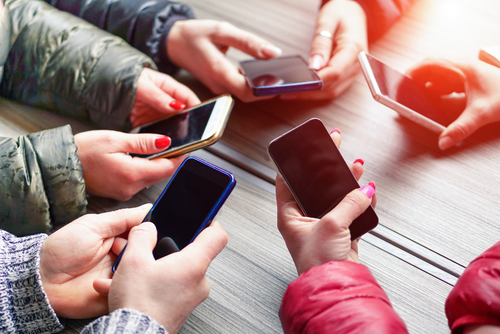Close to half of teachers (42 percent) in a Gallup poll [1] say they think digital devices have a “mostly helpful” impact on students’ education, but they have less positive views of devices’ impact on physical and mental health.
Thirty percent of teachers in the March 5-12 poll say digital devices are neither helpful nor harmful to students’ education, and 28 percent say devices are mostly harmful.
Fifty-five percent of surveyed teachers say digital devices have a “mostly harmful” effect on students’ physical health, and a resounding 69 percent of teachers say students’ digital device use has a mostly harmful impact on their mental health.
The results are especially interesting when viewed in relation to increased debates about how students’ use of social media may impact anxiety and depression, as well as how social media platforms can be used for bullying.
Despite educators’ views, most students own at least one device. The Gallup poll cites 2015 Pearson research showing that 53 percent of elementary school students, 65 percent of middle school students, and 82 percent of high school students own smartphones. Pew Research [2] estimated in 2015 that more than two-thirds of teens have access to a smartphone.
Because so many students have their own devices, a growing number of schools allow students to use those devices for learning via bring your own device (BYOD) initiatives. Many schools and districts have focused on mobile device management strategies that help classroom teachers manage device distractions and keep students on task as they use smartphones, tablets, or laptops for learning. Schools also continue to grapple with cyberbullying and harassment occuring online and through social media.
When the results are broken down by grade level, 48 percent of K-8 teachers compared to 36 percent of grades 9-12 teachers say they think students’ devices are mostly helpful.
Younger teachers tend to view digital devices as more helpful to students’ education, according to the survey results. Fifty-one percent of teachers younger than 40 say devices are “mostly helpful” to students’ education, compared with 36 percent of teachers 40 or older who agree. Twenty-two percent of teachers younger than 40 say digital devices are mostly harmful to students’ education, while 32 percent of teachers ages 40 or older say the same.
The Gallup poll surveyed 497 K-12 teachers in the U.S.
